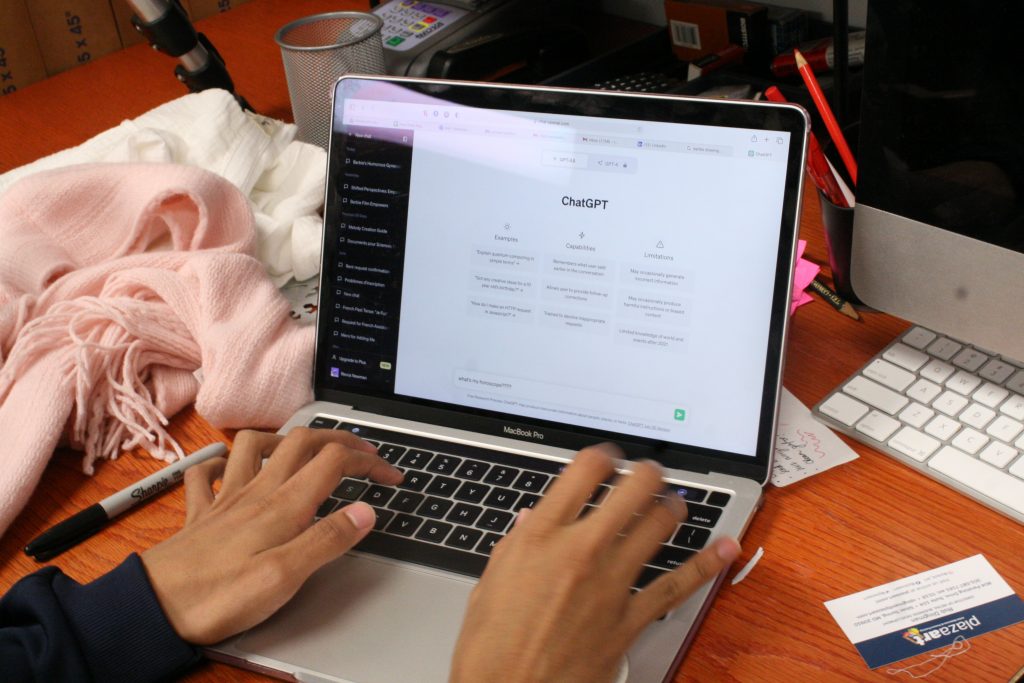
The evolution of technology has transformed the landscape of education, offering college students a wide array of innovative tools to enhance their learning experiences. Among these cutting-edge advances is ChatGPT (Generative Pre-trained Transformer), an AI-powered language model that has sparked varying opinions from educators and students alike. This Artificial Intelligence tool has revolutionized the way students access information and has proved so far to be a valuable asset for college students, empowering them to thrive academically and learn new information.
As students, we never stop having questions, whether it is 4 p.m. or 4 o’clock in the morning. During odd hours of the day, contacting professors and even other students does not yield responses. One of the most valuable benefits of AI is that it provides instantaneous access to a large repository of information, and can produce immediate answers to questions on a wide range of subjects. Anywhere and anytime, students are now able to clarify doubts, grasp complex concepts and reinforce their understanding.
Unique among natural-language processing chatbots, ChatGPT has the ability to analyze past interactions and preferences to tailor its future responses to meet the individual needs of each user. Because ChatGPT can adapt to the unique learning style of each of its users, it fosters more effective learning outcomes and encourages students to engage actively with the material.
There is no limit to how one can use ChatGPT, and it is not just for answering questions. For example, I often use it as a virtual tutor to walk me through the steps of complex problems in calculus and linear algebra. It teaches me different problem-solving techniques, study methods and even recommends additional problems to work through.
I have also used ChatGPT to help me write bullet points for my resume and LinkedIn page and to brainstorm creative essay topics. ChatGPT has also assisted me in searching for relevant scholarly articles and summarizing research papers. By automating these tasks, I was able to devote more time to analyzing and synthesizing information.
Naysayers may argue that ChatGPT makes it easier for students to cheat or behave unethically in the classroom, but people who are used to cheating in school will always find a way, no matter what technologies exist. We should take advantage of new technological tools in order to increase efficiency and productivity in and outside of the classroom. By embracing ChatGPT and integrating it into their learning practices, students can harness the power of AI to excel academically, become more independent learners and prepare for a future where technology plays an ever-increasing role in education.
As the use of AI in education expands, it is crucial to address ethical considerations surrounding data privacy and the responsible use of ChatGPT. Colleges and other educational institutions should implement robust guidelines and policies to ensure students’ data remains secure and that AI is used to complement traditional teaching methods rather than replacing them entirely. It is crucial for us to embrace the future of technology and its role in our society instead of fearing the unknown.


